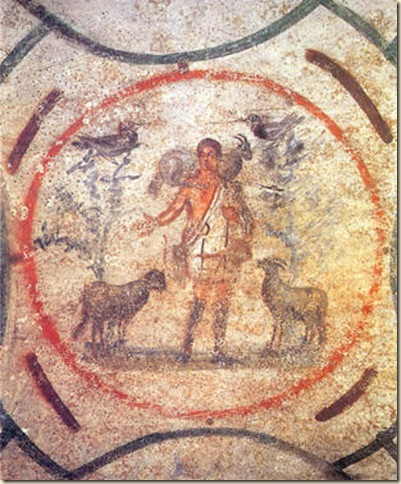Kolasis aionion -Matthew 25:46-
Greek scholar William Barclay wrote concerning kolasis aionion (age-during corrective chastisement) in Matthew 25:46
“The Greek word for punishment is kolasis, which was not originally an ethical word at all. It originally meant the pruning of trees to make them grow better. There is no instance in Greek secular literature where kolasis does not mean remedial punishment. It is a simple fact that in Greek kolasis always means remedial punishment. God’s punishment is always for man’s cure.”
Fifteen literally translated (not interpretively translated) Bibles that reveal what God will do with the sinners in Matthew 25:46
Concordant Literal, Young’s literal, Wilson’s Emphatic Diaglott, Rotherham’s Emphasized, Scarlett’s, J.W. Hanson’s New Covenant, Twentieth Century, Ferrar Fenton, The Western New Testament, Weymouth’s (unedited), Clementson’s, The New Testament of our Lord and Savior Jesus Anointed, The Restoration of Original Sacred Name Bible, Bullinger’s Companion Bible margins, Jonathan Mitchell’s translation (2010).
Concerning the duration of kolasis (literally - corrective punishment), Matt. 25:46 says (KJV),
“And these shall go away into everlasting punishment, but the righteous into life eternal.”
Scarlett’s New Testament written in 1792 has “aeonian punishment” in place to “everlasting punishment.”
“And these will go away into aeonian punishment: but the righteous into aeonian life.”
The New Covenant by Dr. J.W. Hanson written in 1884 renders Matt. 25:46:
“And these shall go away into aeonian chastisement, and the just into aeonian life.”
Young’s Literal Translation first published in 1898 and reprinted many times since uses the following words:
“And these shall go away to punishment age-during, but the righteous to life age-during.”
Professor Young also compiled Young’s Concordance, where one can check the translation of each Hebrew or Greek word as translated in the KJV.
The Twentieth Century New Testament first printed in the year 1900 has:
“And these last will go away ‘into aeonian punishment,’ but the righteous ‘into aeonian life.’”
The Holy Bible in Modern English by Ferrar Fenton first published in 1903 gives the rendering:
"And these He will dismiss into a long correction, but the well-doers to an enduring life.
The New Testament in Modern Speech, by Dr. Weymouth, says:
“And these shall go away into punishment of the ages, but the righteous into life of the ages.”
Dr. Weymouth most frequently adopts such terms as “life of the ages,” “fire of the ages;” and in Rev. 14:6, “The good news of the ages.”
It is a matter to regret that the editors of the most recent edition of Dr. Weymouth’s version have reverted to the KJV renderings for the passages containing the Greek word aion, eon, or age.
The Western New Testament published in 1926 renders Matt. 25:46 as follows:
“And these will go away into eternal punishment, but the righteous into life eternal.”
The translation, however, has a footnote on Matthew 21:19 on the word “forever” which is the same word for “eternal” which says: "Literally, for the age.”
Clementson’s The New Testament (1938) shows,
“And these shall go away into eonian correction, but the righteous into eonian life.”
Wilson’s Emphatic Diaglott (1942 edition) translates the verse,
“And these shall go forth to the aionian cutting-off; but the righteous to aionian life.”
It should be noted that the “cutting-off” refers to pruning a fruit tree to make it bear more fruit.
The idea behind the word is not destructive but productive! Had Jesus wanted to emphasize a destructive end, He would have used the word “timoria.”
The Concordant Version (1930):
“And these shall be coming away into chastening eonian, yet the just into life eonian.”
The New Testament of our Lord and Savior Jesus Anointed printed in 1958 says:
“And these shall go away into agelasting cutting-off and the just into agelasting life.”
Joseph B. Rotherham, in his Emphasized Bible (1959), translates this verse,
“and these shall go away into age-abiding correction, but the righteous into age-abiding life.”
The Restoration of Original Sacred Name Bible copyrighted in 1976
has “age-abiding correction” instead of “everlasting punishment.”
Jonathan Mitchell’s translation (2010)
"And so, these folks will be going off into an eonian pruning (a lopping-off which lasts for an undetermined length of time; an age-lasting correction; a pruning which has its source and character in the Age), yet the fair and just folks who are in right relationship and are in accord with the Way pointed out [go off] into eonian life (life which has it source and character in the Age; life pertaining to the Age)”.
Even some King James Study Bibles will show the reader in the margins or appendixes that the King’s translators were incorrect in their rendering of "eternal punishment.”
The great Companion Bible by Dr. Bullinger is an example of that.
Greek scholar William Barclay wrote concerning kolasis aionion (age-during corrective chastisement) in Matthew 25:46
“The Greek word for punishment is kolasis, which was not originally an ethical word at all. It originally meant the pruning of trees to make them grow better. There is no instance in Greek secular literature where kolasis does not mean remedial punishment. It is a simple fact that in Greek kolasis always means remedial punishment. God’s punishment is always for man’s cure.”

